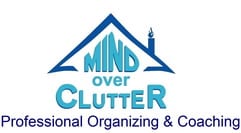7 Habits of very organized people
So you want to get organized?
Achieving order in your life doesn’t mean being perfect. That’s not realistic. Getting organized is not an event; it’s a process that happens over time. Like changing your eating or exercise habits, it sometimes involves behavioural changes and routines.
Perfectionism
Is being unrealistic by spending so much time on a task that it deprives other important tasks of sufficient time.
Excellence
Is doing the best job you can with the time and resources at your disposal.
What is organization?
Being organized has less to do with the way an environment looks than how effectively it functions. If a person can find what they need when they need it, feels unencumbered in achieving his or her goals, and is happy in his or her space, then that person is well organized.
Myth #1 Organization is a born talent.
- Organization is a skill. If the right resources or support are available it is easy to learn.
Myth #2: It’s impossible to stay organized.
- Organizing is sustainable, if systems are built around the way the person thinks and designed to grow and adapt to new information.
The 7 Habits of Very Organized People
1. They have a place for everything
- 25% of business documents are misplaced and will never be located so those documents must be recreated.
2. They put things back
- Executives waste six weeks per year searching for items.
3. They write things down
- Make a master list of things to do to determine the priorities for the next day. This may include planning the most effective routine to use to accomplish the tasks, the route driven to see a client or considering high and low energy cycles in the day and planning tasks accordingly.
4. They don’t allow papers/e-mails to pile up.
- The average worker sends and receives over 190 messages each day. Approximately 60 e-mails can be processed each hour. Learn how to use e-mail effectively in order to limit the number of e-mails received and sent each day.
5. They don’t procrastinate
- Procrastinating causes people to spend more time and energy on avoiding the task than completing it. Once it is accomplished it is out of sight and out of mind.
6. They set goals and assign deadlines
- Schedule a time for each task in the project to be completed, so deadlines can be met easily.
7. They only keep what they use and enjoy.
- Clutter is usually the “extra” that is kept on hand just in case it is needed. About 20% of items are used 80% of the time, so 80% of items are hardly used at all. Find the important 20% and let go of the unimportant 80%.
- They have a place for everything
- They put things back
- They write things down
- They don’t allow papers/e-mails to pile up.
- They don’t procrastinate
- They set goals and assign deadlines
- They only keep what they use and enjoy.
If you need help getting organized contact me for a virtual consultation
 Julie Stobbe is a Trained Professional Organizer who brings happiness to homes and organization to offices, coaching you virtually using Zoom. She enjoys working with her clients to provide customized organizing solutions to suit their individual needs and situations. She reduces clutter, streamlines processes and manages time to help her clients be more effective in reaching their goals. Online courses are available to help instruct, coach and support your organizing projects. Get started by downloading Tips for Reorganizing 9 Rooms.
Julie Stobbe is a Trained Professional Organizer who brings happiness to homes and organization to offices, coaching you virtually using Zoom. She enjoys working with her clients to provide customized organizing solutions to suit their individual needs and situations. She reduces clutter, streamlines processes and manages time to help her clients be more effective in reaching their goals. Online courses are available to help instruct, coach and support your organizing projects. Get started by downloading Tips for Reorganizing 9 Rooms.
Contact her at julie@mindoverclutter.ca
X –Facebook – Facebook group Organizing Mind and Space


Your post is very true (for me….) since I do a lot of organizing project at homework, work, in the computer and so on…I just cannot stand clutter….
Thanks for the tips. Your points about writing things down and setting goals/deadlines help me reduce stress since it gives me a clear picture of my work.
I also have recently been getting rid of stuff I no longer use, and the process has been liberating.
I like the ways you expressed “having a clear picture”. There are many ways to develop habits that create a clear picture and give you a map to follow. Finding whats works best for you is the trick. I am glad that you have a system that helps you. Some people fear taking the step of getting rid of items but it is liberating to not be distracted or overwhelmed by things you don’t need, want or use.
Hi Julie:
Excellent points. The hardest part about getting rid of stuff is getting started. Once I got past that initial hesitation it became easier because I realized I really didn’t need the stuff. Reducing clutter also helps focus. I found your ‘3 Tips for organizing your spring cleaning’ very helpful as well. Thanks!
Some people like to use the metaphor of exercising a muscle. Once you start it gets easier. Getting rid of things it becomes easier every time you make a decision to let go of something, the next step is easier. Starting to let go, just as starting to exercise, is the hardest part.
Julie, I love the way you laid this information out. it is so true! Let’s all eliminate the 80% of stuff (including thoughts) that we don’t need or use and stick to the 20% that we use frequently!
Thank you for including the idea of eliminating 80% of the thoughts that don’t serve us well.
I certainly agree with this list. It’s simple and easy to understand. That said, for many I know it is “easier said than done.’
I’m particularly struck by your point #2. This isn’t an intellectual exercise, but it is totally necessary. I often tell clients that being organized is really a lot of walking around and putting things away. I don’t think there is a way to stay organized without doing this. It’s part of my ongoing routine all day long.
I agree that walking around and putting things away is the key to being organized. The more that is laying around gives permission to leave more on the pile and soon it becomes over whelming. Most clients want to get organized and be done. It is the habit of putting things away that makes it feel like your done organizing. Nothing builds up again to be decluttered. If only it was that easy.
What a wonderful list for understanding that being organized involves effort and mindset, not natural talent. I was just talking to a client today about the importance of closing loops, including #2 and putting things away. That doesn’t just mean putting away tangible things, but finishing up a thought or process rather than leaving it in midstream.
I think everyone struggles with procrastination to some extent, but #5 is right in that we all have to have a system to get us back on track.
Thank you for the comment about putting tangible things away and finishing a thought or process. Leaving things partly completed and not getting back to them creates a lot of disorganization. Your comment clearly explans why multitasking is ineffective. There are many times I walk out of a room to do something and I am onto the next thought and forget why I am in the new room. I stop and concsiouly think over the process so I can complete the task.
I love this, and I despise clutter. You are right on the 80% unimportant items that we have, those items should go for sure. Less clutter, more space.
It is interesting that some people are uncomfortable with space and so continue to refill it.
I have a pretty good handle on most of these things, but lately I’ve had to remind myself of the importance of writing things down. It often doesn’t seem worth it to note tasks such as “Email Robert” or “mail card to Suzy” but if they aren’t on my list, they’re taking up space in my head and making me feel like I have more on my plate than I actually do.
I have to write down all those small tasks too otherwise the big tasks take over and I run out of time for the small tasks. The other reason I like recording the small tasks is to develop a timeline and order when there are tasks I need to complete onroute from one job to another.